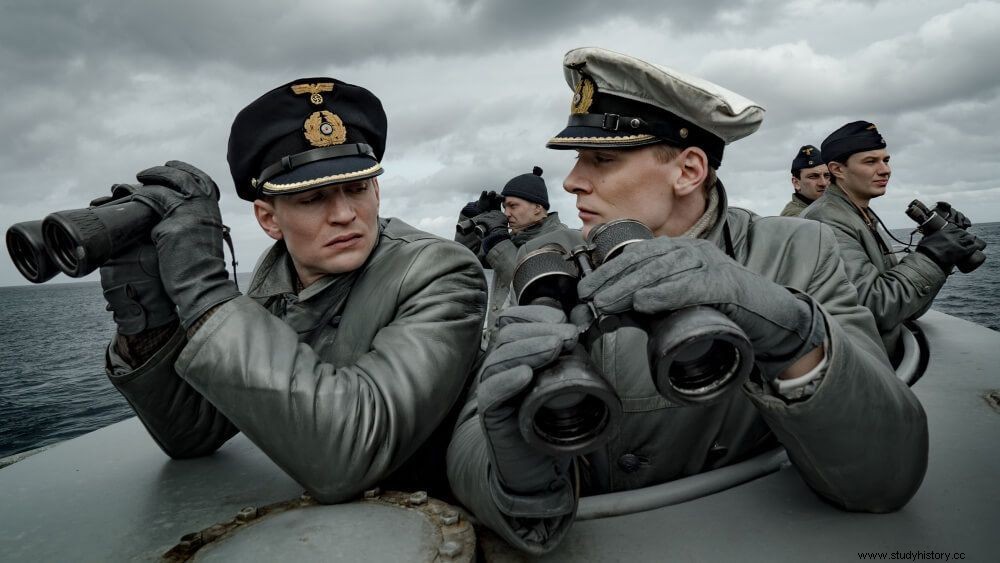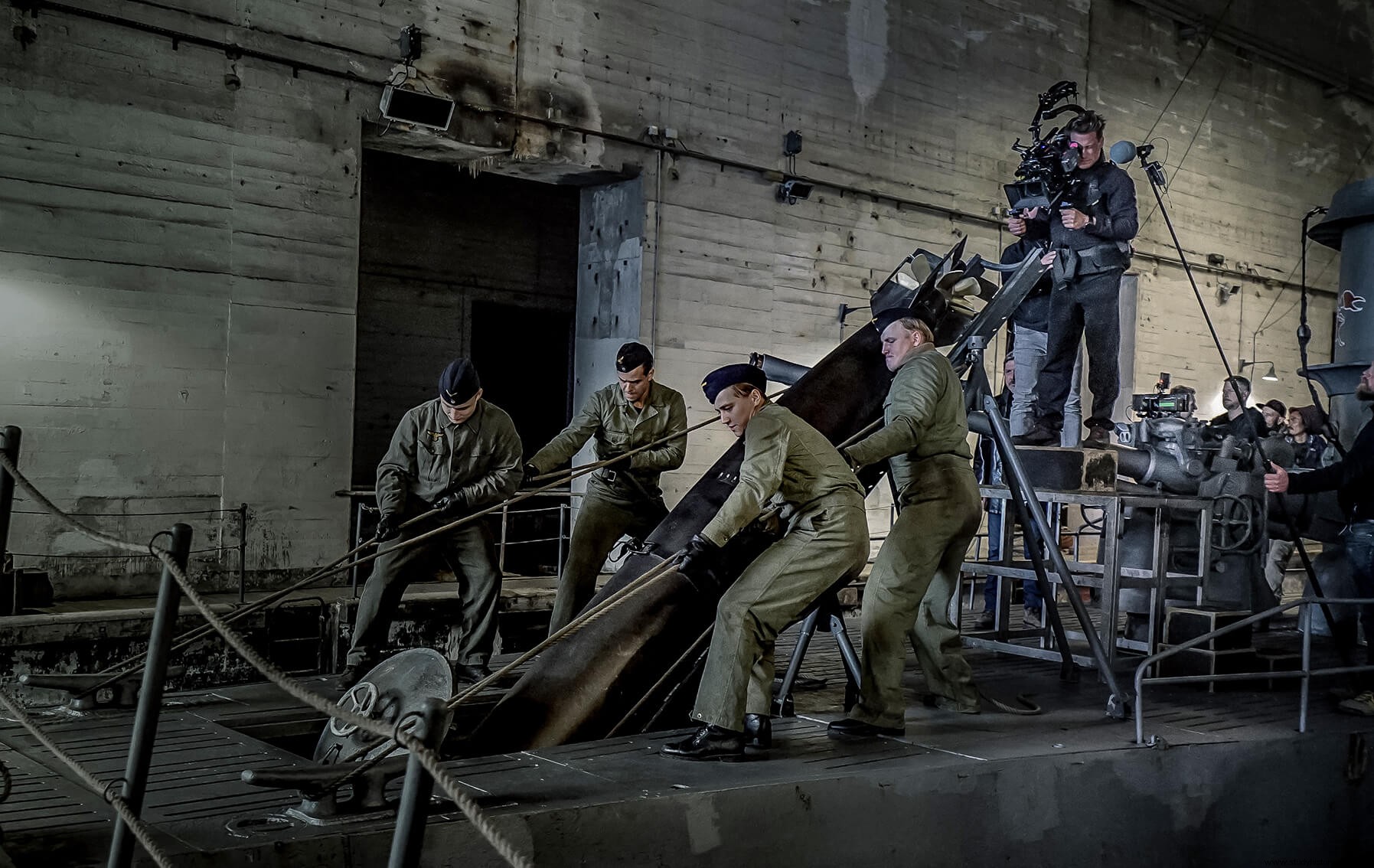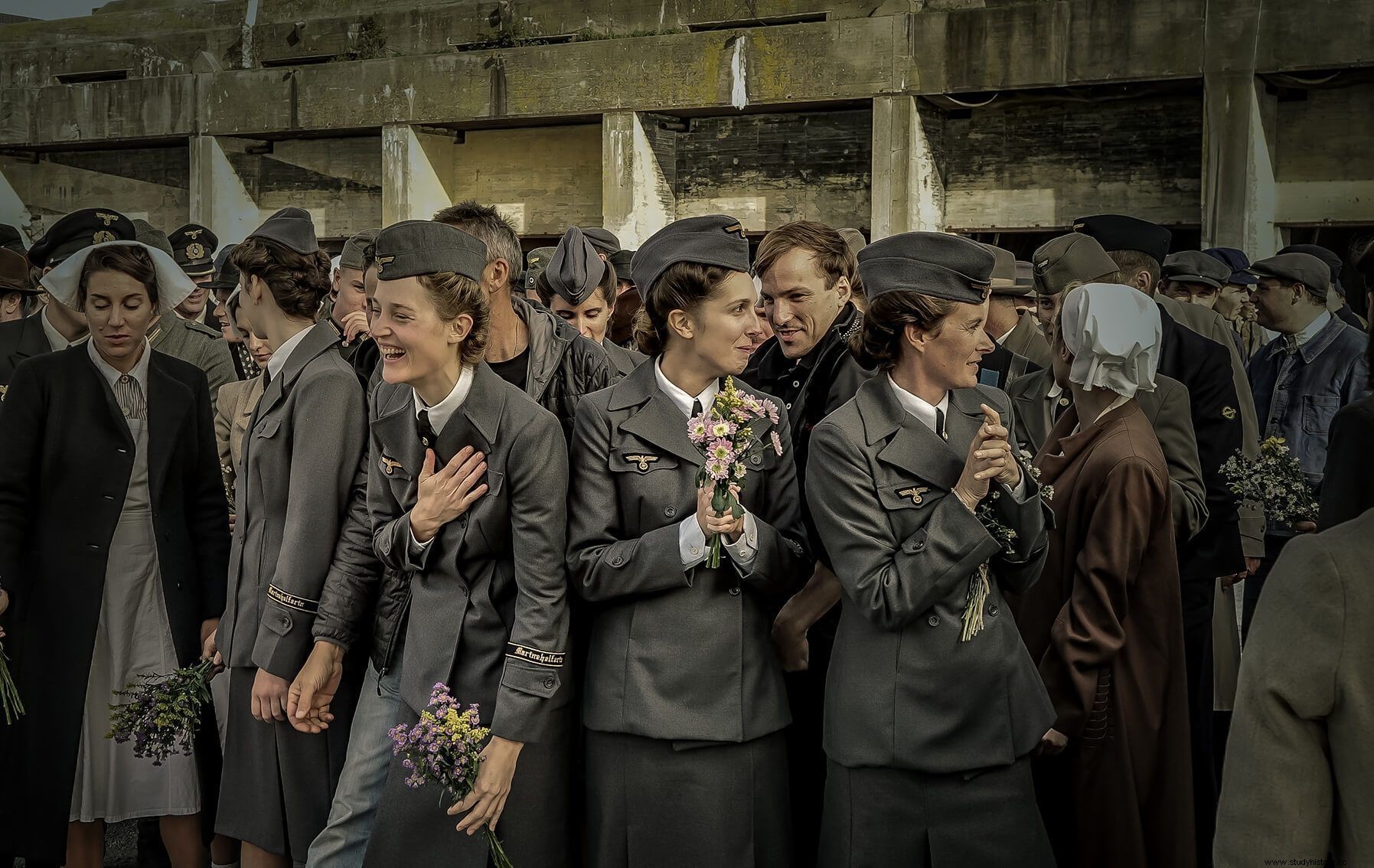
Note:this article has undergone a update after viewing chapter 4, see last section at the end of it (does not contain spoilers).
In 1981, an almost unknown Wolfgang Petersen , then director of films like The NeverEnding Story (1984), In the line of fire (1993), The Perfect Storm (2000) and yes, also Troy (2004, in which, not content with turning Patroclus into Achilles's cousin, he destroys the Greek tragedy by killing Menelaus and Agamemnon) surprised locals and strangers alike with what is considered by many to be the best German film in history, Das Boot , a war drama set in 1941, in the context of the Battle of the Atlantic, for which he received six Oscar nominations (including best director and best adapted screenplay). Das Boot It presented two novelties with respect to classic war films:on the one hand, it presented us with characters brimming with humanity and far from the stereotyped image of the Hollywood Nazi to show us genuine soldiers fighting for their country, a witness that other films such as Stalingrad (1993); and on the other, it introduced the viewer into the guts of a German submarine and immersed him (!) fully in the action, sharing during the two and a half hours (which amount to 209 minutes of the director's cut and 282 minutes! of the uncut version marketed in 2004, essential to see it in the original version) of vertiginous and claustrophobic footage the adrenaline, the anguish, the fears, the euphoria, the hope and one could say that even the stench of that submersible coffin with the rest of the crew. An immersion (!) in the action that a server (who after seeing Das Boot tried to grow a captain's beard, but never became a cook) did not experiment again until the Normandy Landing scene in the opening bars of Saving Private Ryan (1998), by Steven Spielberg, or, more recently, in the Dunkirk (2017) by Christopher Nolan.
Almost four decades later Das Boot:the submarine arrives on our screens , whose first chapter can be seen on AMC on Thursday, February 21 at 10:10 p.m. (already available on the Movistar+ digital platform), an eight-part German television production directed by the Austrian Andreas Prochaska –responsible for the careful but anodyne Burgundy (2017), a six-part series on the rise of Maximilian I and Mary of Burgundy– whose plot, like Petersen's classic, is based on the novel Das Boot (1973) by Lothar-Günter Buchheim, veteran of the Kriegsmarine and Knight's Cross with Oak Leaves, and in its sequel, Die Festung (nineteen ninety five). And after viewing the first chapter, 60 minutes long, we leave you our impressions.
The beginning couldn't be more revealing:we find ourselves inside a German submarine in the middle of the Atlantic in search of its prey, which suddenly finds itself under enemy fire. Aviation first, dive, dive! Depth charges later. The biter bit. We experience again that terrible feeling of vulnerability, of claustrophobia, of no escape. The action moves to La Rochelle, in 1942 (after, therefore, Petersen's film), where we are introduced to the characters, played by an international cast of actors with many familiar faces, with two interrelated plots. One around the submarine, in which two disparate personalities stand out at the moment, that of the distant and insecure Kapitänleutnant Klaus Hoffman (played by the German actor Rick Okon), young and inexperienced who must bear the responsibility of his first command, and of being the son of a famous and respected commander; that contrasts with the veteran of the seasoned and disciplined Oberleutenant zur See Karl Tennstedt (August Wittgenstein, who in addition to being an actor is a German prince!), who exudes camaraderie and complicity with the crew gained over the years. The other on land, which for the moment revolves around Simone Strasse, a recently arrived Alsatian performer (played by Vicky Krieps from Luxembourg, muse of Daniel Day-Lewis in The invisible thread ) who is involved in the clandestine activities of her brother; Hagen Forster, Kriminalrat of the Gestapo (the German Thomas Wlaschiha, the "man without a face" Jaqen H'ghar from Game of thrones ); and Carla Monroe, a French resistance leader (American Lizzy Caplan, Virginia Johnson in Masters of Sex ).

From what little we have seen so far , the first plot, which connects more with the original story, is the one that from my point of view is more interesting. The first chapter closes with our U-boat setting sail for the Atlantic on its first mission, but before that we have been able to attend the preparation of the ship, the loading of the torpedoes, the crew's last moments of leisure and revelry, a tour of the La Rochelle submarine base, etc. in addition to the already mentioned duel of personalities that is predicted. Without being an expert in the matter, it is evident that the production has put great care in the uniformological facet, which is most convincing.

The second argument line is the one that introduces the main differences compared to Das Boot by Petersen:a subplot on land with the Gestapo and the French resistance involved, and an important female presence in weighty roles. We'll see how this story unfolds, which a priori seems to have a somewhat forced fit to try to accommodate the series to a broader audience.
In short, a first chapter that without yet arousing the fascination of other recent German productions such as Our mothers, our fathers (2013, horribly titled in Spain Hijos del Tercer Reich ) or Babylon Berlin (2017), it does invite you to continue seeing more, especially those packs of wolves in action. A detail for the staunch of the original version, each one speaks in the language that he plays, which is much appreciated.
Sensations after passing the halfway point of the series
After viewing chapter 4, the doubts regarding the subplot on land dissipate, since it acquires as much or more interest and intensity than the plot line on board the submarine. The large female presence, concession or not to the current times, is fully justified and in some way serves as a vehicle to show the impact of the war on the civilian population, less aligned than we might expect, victim both of the German occupation as of the actions of the resistance.
Both this plot and that of the submarine –which goes out of the usual channels, which does not mean that there is no action!– flees from characterizing sides in a homogeneous way to portray individuals , through a carousel of sinister, honorable, cynical characters, devoted to duty (but what duty is that! How different are the just causes of one and the other!), cruel, moralistic, all of them traumatized in one way or another , present on both sides, through an intelligent exercise of alterity and breaking down clichés.
(Little spoiler ) Only one “but” to so much praise, that of that resistance leader (played by Lizzy Caplan) who speaks in English with her French subordinates (while they answer in French), a language that they also use to understand each other. commissioners of the Gestapo and the French police, as if English were the lingua franca in the France of 1943. That the Gestapo had in an Atlantic port as important as La Rochelle a commanding officer who did not know French is not very understandable, but that the thugs of the resistance, who do not appear to have a well-to-do social background, understand perfectly the orders of his boss... a concession perhaps to Anglo-Saxon audiences, which in my opinion detracts from the series' credibility.
